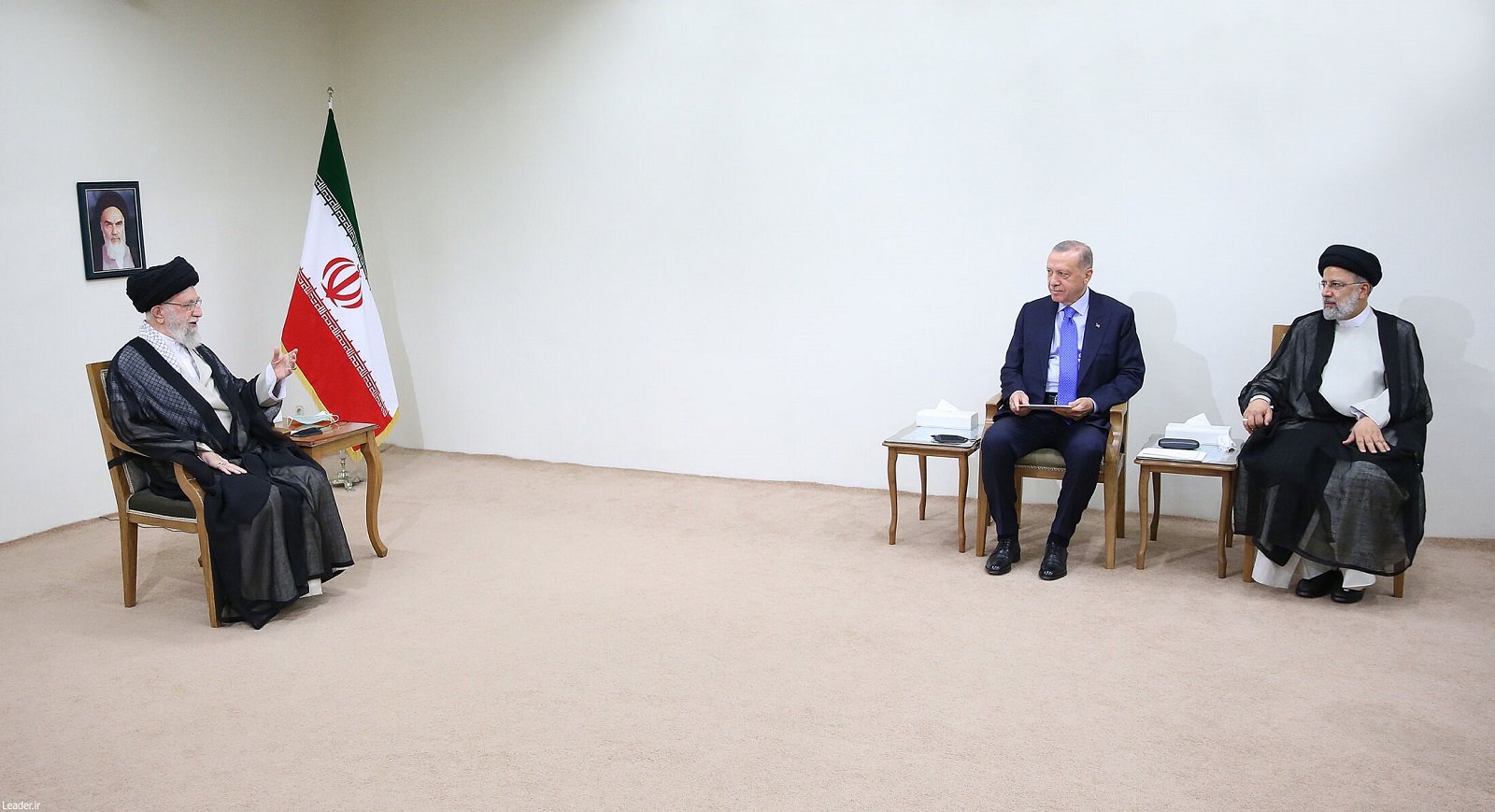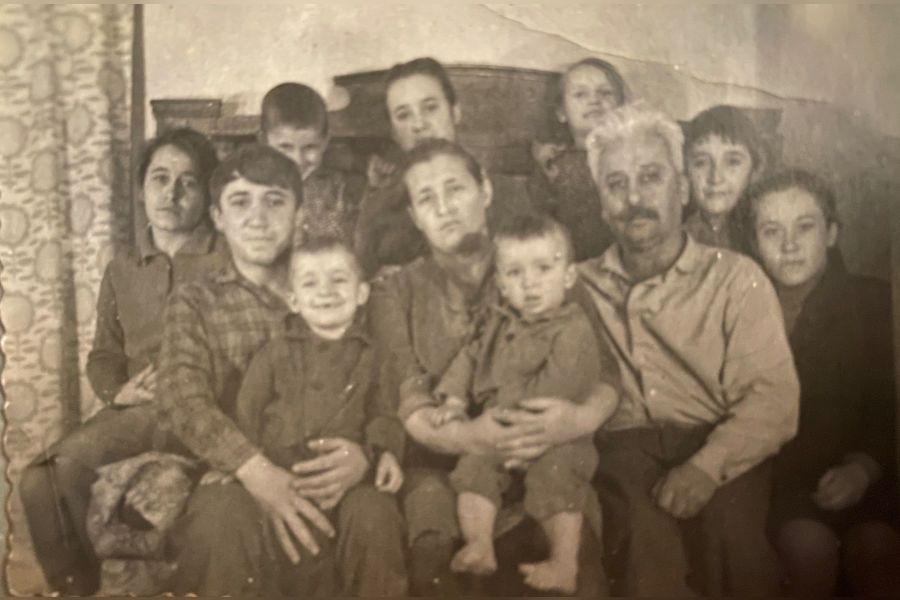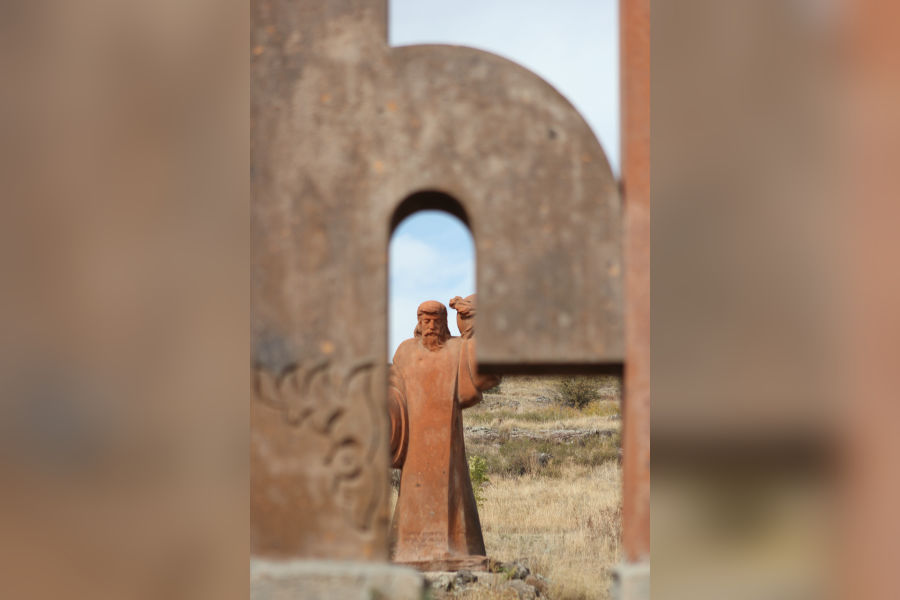Will Iran fight Azerbaijan if Baku seeks to invade Syunik?


In the last 10 days, the most discussed issue amongst Armenian media, experts and political circles was the statement of Iran’s Supreme Leader during his meetings with the Russian and Turkish presidents held in Tehran. The presidents of Russia, Iran and Turkey gathered together to discuss the future of Syria in the Astana format amidst the ongoing war in Ukraine and complete rupture of Russia-West relations. Few could imagine that the Supreme Leader would mention Armenia and, in particular, the Armenia-Iran border during the summit. However, the Iranian message was clear: Iran will not tolerate the closure of the Armenia-Iran border.
It might seem that the main target of this message was not in the room. Azerbaijani President Ilham Aliyev did not participate in the meeting. He has constantly threatened Armenia that if Yerevan is not going to forget about Nagorno Karabakh, then Azerbaijan would start to speak about Syunik.
The declaration of parts of Armenia as historical lands of Azerbaijan is not new for President Aliyev. Only a few years after assuming office, President Aliyev ordered Azerbaijani historians to find proof that Nagorno Karabakh was ancient Azerbaijani land. After the victorious war of 2020, high-level Azerbaijani authorities frequently spoke about all of Armenia being historical Azerbaijani land that artificially separates the Turkic world. A few weeks ago, the Azerbaijani president signed a decree to commemorate the anniversary of the Azerbaijani theater in “Erivan,” as Azerbaijanis called the capital of Armenia. In this decree, there were a lot of words about “Erivan” being historical Azerbaijani land and about massacres of Azerbaijanis there. This rhetoric and overt threats against Armenia to invade parts of Armenian territories were noticed in Yerevan and other capitals involved in the regional geopolitics.
Thus, one of the primary targets of the Supreme Leader’s message was President Aliyev. However, Iranians are wise enough to understand that any large-scale military attack against Armenia is impossible without Turkey’s direct endorsement and involvement. Armenia and Turkey are in the middle of the normalization process and even reached an agreement to open a land border for the citizens of third countries and start direct air cargo flights. However, Turkey always mentioned that the Armenia-Turkey normalization process is not only about these two countries. It is more about other actors, such as Azerbaijan, Russia, the US and Iran. In recent days, both the Turkish president and foreign minister made clear statements that full normalization is possible only if the issue of Azerbaijan is solved, which means that full normalization is possible only if Armenia agrees to sign a treaty with Azerbaijan based on Azerbaijani terms, effectively finishing with Armenians in Artsakh. Thus, as Turkey pushes Armenia to accept Azerbaijani demands, Turkey will be happy to assist Azerbaijan in any new war against Armenia.
Some wondered why the Supreme Leader mentioned the Armenia-Iran border issue during his meeting with the Russian president. One should have a powerful imagination and fantasy to argue that Russia is interested in the closure of the Armenia-Iran border or Azerbaijani control over the southern parts of Armenia. The Armenia-Iran border is the only land border between the Eurasian Economic Union and Iran. Iran and EAEU are close to signing a free trade agreement, and Russia seeks ways to expand its cooperation with Iran as the two face immense pressure from the US. Russia has no reason to be interested in the closure of the Armenia-Iran border, especially as the Russian border troops control the border itself. Russia established several military outposts in Syunik after the 2020 Karabakh war based on the requests of the Armenian government. Thus, most probably, the Supreme Leader just wanted to remind Putin that Iran is in line with Russia on this issue, and maybe he wanted to indicate that Iran was ready to support Russia by investing in Syunik and thus preventing the local population from leaving the region due to the lack of economic opportunities. Iran’s decision to open a consulate in Kapan, the capital of the Syunik region, is more proof of its intentions to keep the current status quo, where Armenia is under the Russian security umbrella and will not provide its territory for any anti-Iranian activities.
Meanwhile, it should be obvious to Armenia that Iran’s categorical rejection of any control of Azerbaijan over Syunik does not mean that if Azerbaijan starts a large-scale war against Armenia with the apparent goal to invade Syunik, Vayots Dzor, and perhaps other territories of Armenia, Iranian troops will enter Armenia and start fighting against Azerbaijan. War with Azerbaijan will be a catastrophe for Iran. It will not only completely derail Iran-Azerbaijan relations, but it may also trigger Turkey’s involvement in the war. War with Ankara is the last thing that Iran may desire. Given the apparent deadlock over the negotiations to restore the Iran nuclear deal and the growing probability of Israeli military strikes against Iranian nuclear targets ahead of early parliamentary elections in Israel, Iran cannot avoid tensions and war with Turkey. Thus Armenia should welcome the clear-cut position of Iran that Tehran will not tolerate the occupation of Syunik by Azerbaijan, but Yerevan should clearly understand that Iran will not intervene militarily and will not start a war against Azerbaijan. Iran is ready to support Syunik economically, create new jobs, raise the population’s living standards, and thus strengthen the positions of Armenia. However, in the foreseeable future, the only military deterrence which will prevent Azerbaijan from launching a large-scale attack on Armenia to seize entire regions is the Russian military presence in Armenia. Thus, the strategy to prevent Azerbaijani attacks on Syunik and other border regions should combine Russian military and Iranian economic presence and assistance while simultaneously making genuine efforts to increase the Armenian army’s capabilities to repel any such attempt.










We shouldnt trust lran at least they could do something during 44 days war lran is most dangerous issue in our international politics west strictly against armenia lran relationship if we will keep contunie walk with anti democratic central asian turkic countries and russia also being part of csto and lran , expecting help from usa france europe totally delusional armenia must run by diaspora not soviet leftovers.
lf lran were honest at least they could show solidarity or help to Armenia during artsakh 44 day war so if balancing relations with turkey more important than armenia our state policy should be same the west eu us nato always warn us against our good relations with lran also this one of reason west stood with turks against our nation and lran didnt that for us so its now our turn for our interest we must switch our side towards to westeen policy against lran now they have to pay price not to helping armenians during artsakh war.
It was confusing to see Iran remain quiet during the war with Azerbaijan (fake nation) however I strongly believe if an all out war occurred the Iranian guards would place pressure on turkey and Azerbaijan. Talks on Iranian drones being operated in the area are happening and I think Iran is studying to see how far turkey is willing to assist before it steps in. I also strongly believe it was the Russians that told Iran to stand down during the fights with Azerbaijan. The supreme leader of Iran has always historically had amicable views with Armenia. Sadly the population of iran, big parts share turkish blood wanted the government to side with Azerbaijan. Sad.. I expect Iran to help this time if anything happens. Or I’ll be disappointed ..
Very true
You’re wrong , Iam a Iranian Azeri , although we may speak a turik dialect we are not Turkish genetically but Iranian , Persian and aryan blood , many misconceptions about different tribes in Iran being OG different ethnic group , no we are Iranian people